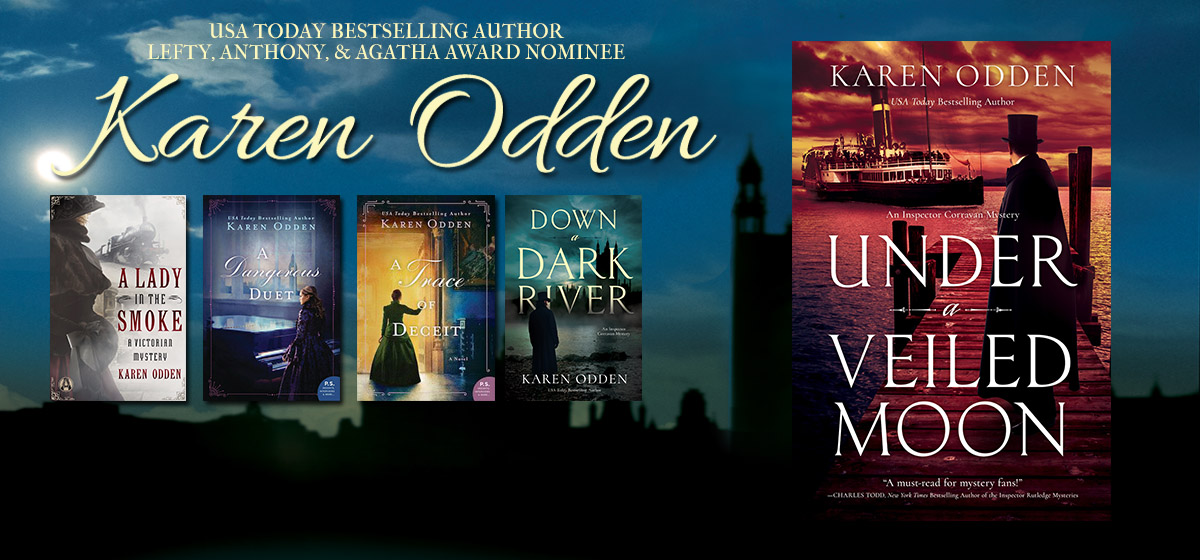
Please note: these readers’ group questions may contain spoilers.
1. Nell’s mother Frances left home when Nell was still an infant, but Matthew was older. Do you see any signs in Nell of having been affected by this abandonment, though she doesn’t remember it? Or signs in Matthew because he does remember it? And are there elements of Nell’s relationship with Matthew that shape her other friendships, with Marceline or Dr. Everett, for example?
2. Mental illness was poorly understood in the 1870s in England, though some medical men and scientists were working in the emerging field. What do you make of the different explanations Dr. Everett and Peggy give for Nell’s mother’s illness? Do you see any hints outside of the two accounts about which of the two explanations is more likely? What would twenty-first century knowledge of psychology suggest?
3. Music halls were a place where the lower classes came to be entertained, celebrating their own brand of bawdy, raucous humor that flew in the face of the rigid and righteous middle-class morality, epitomized in the Society for the Suppression of Vice (founded in 1787), which deplored profanity, gaming, and brothels, among other things. Do you see any similarity between the music halls and any venues or entertainment genres today?
4. Is character like an onion, as Stephen says to Nell toward the end? Is it something that can change over time? Do you find Jack’s account of his father’s change believable? When do you first feel you understand Stephen’s true character?
5. Although many characters have experienced the pain of loss, numerous acts of kindness reverberate throughout the story. For example, Nell recalls Marceline’s early kindness to her, which is repaid by Nell’s in the alley. Do you see good and evil behaviors having a ripple effect? Why are some characters capable of kindness and others are not?
6. Were you surprised by the revelation about Dr. Everett and Charles Tindale? In England, homosexual acts were made a felony by the Buggery Act in 1533, under Henry VIII. The punishment was death by hanging until 1861 in England and Wales, though Scotland waited until 1887 to change it. Did you find the representation of this homosexual relationship realistic for the period? Why or why not?
7. What gives this novel a feeling of historical period? Why could it, or could it not, take place today?
8. Dr. Everett says that the piano is a “dangerous partner” for Nell. To what extent do you think Nell’s love of her piano may derive from her longing for danger? Or longing for her mother? Or another kind of longing altogether? In what ways is her dilemma about how Nell should play the piano related to the question of how she should live her life? What would Nell be like if she couldn’t play the piano?
9. Clearly the boys in the Fleet are being exploited; but given Jack’s comments about where many of them came from, do you find his comment that they might be better off now compelling? Do you see places where this sort of ambiguity exists in our society today?
10. Amalie and Nell are to some extent parallels for each other: each is talented; each comes to the Octavian with dreams. As you learned more about Amalie, were you surprised by Amalie’s past and the way Amalie has managed her life? Do you think she is happy?
11. Nell and Matthew have similarities with Marceline and Sebastian; Nell understands Marceline’s desire to protect her brother, and Nell’s desire to reunite Marceline with Sebastian drives the first half of the book. But how is Sebastian alike or different from Matthew? Do you think Sebastian behaves with his sister’s best interest at heart? Why or why not?
12. In the 1870s, Scotland Yard was not the respected division it is today, and the public didn’t necessarily trust plain-clothes detectives—a distrust that wasn’t unfounded. In fact, in 1877, two years after this novel is set, the Yard came under fire for a huge corruption scandal, and four senior detectives were put on trial, with three sentenced to prison. In investigating men in his own division, Matthew is like other police in pop culture, from Dennis Quaid’s character Remy McSwain in The Big Easy to Steve Arnott in Line of Duty. Why do you think this is an enduring archetype?
Did you know Karen will Zoom with your book club?
Find more exciting books by Karen Odden from your favorite local bookseller.
